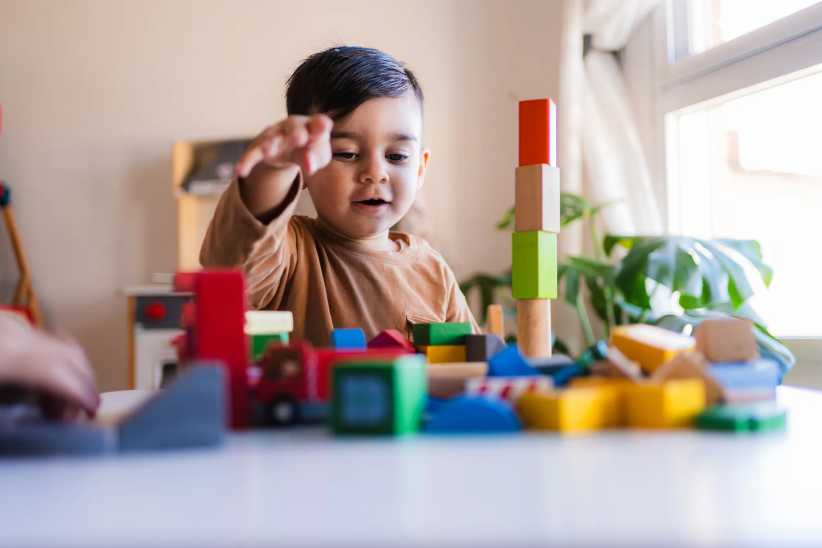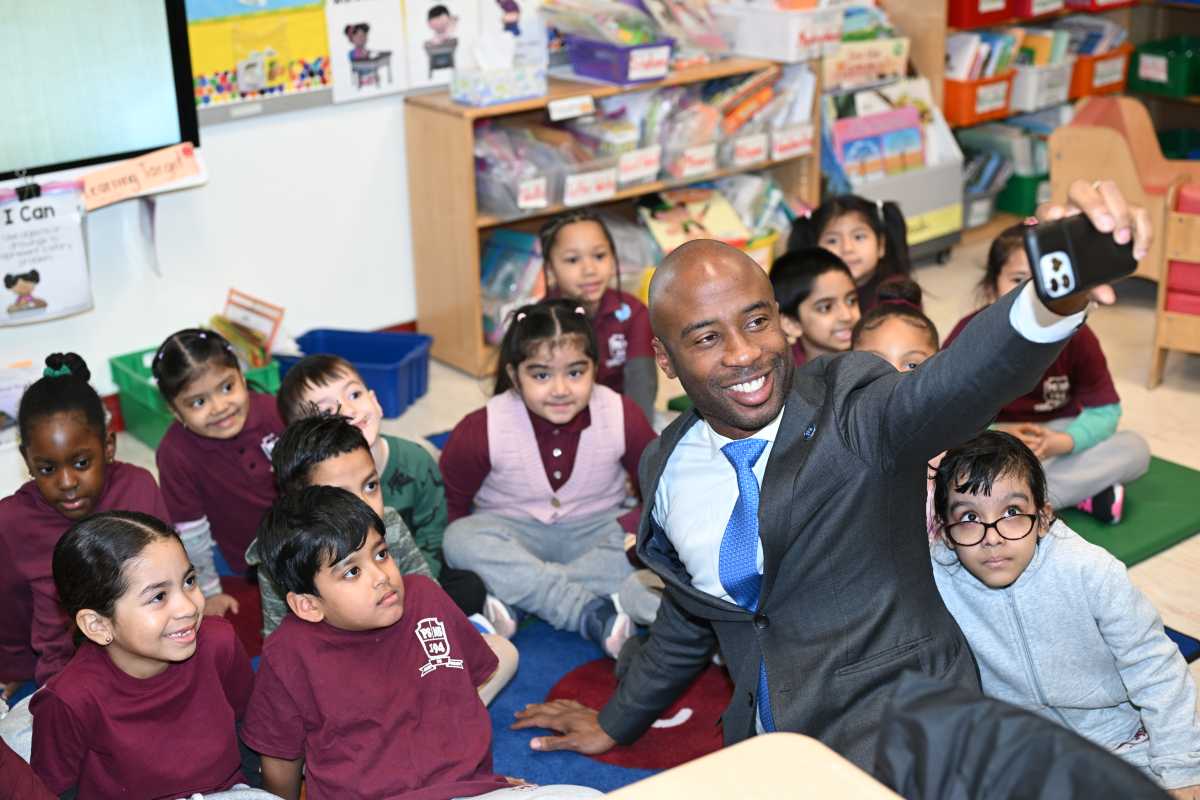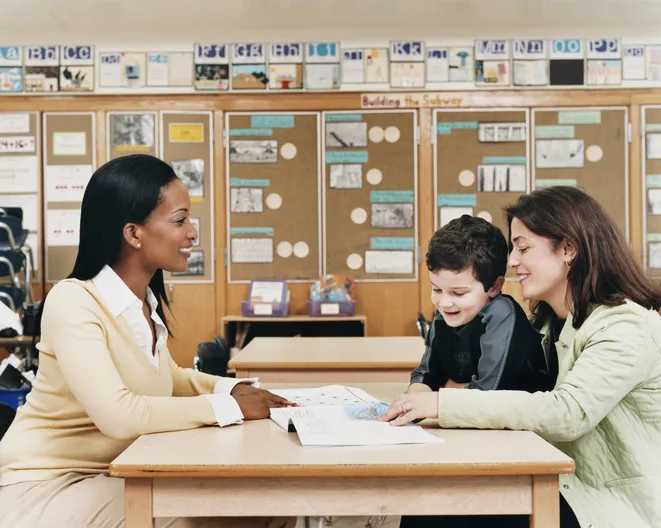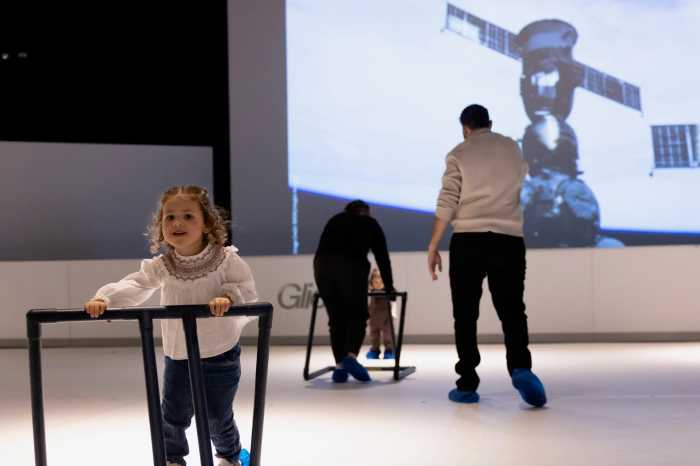Whether you’re sending your little one off to pre-K for the first time or have a couple of school-age veterans returning, Sally Tannen, Director of 92Y’s Parenting Center, has advice to help parents make smooth back-to-school transitions for all this fall.
Q: My 4-year old will be starting pre-K in September, and I’m worried about her accepting my leaving her at school. Any advice?
A: Separation can be anxiety-producing for both children and parents, but there is a great deal you can do to encourage a positive experience for everyone. Most importantly, parents need to keep their own anxiety in check or a child will pick up on it. Parents’ behavior is shaped by their own separation memories. You might have been excited or nervous or sad on your own first day of school That is your experience, and it’s important not to project it onto your child, but to respect her own style, whether its “easy adapter” or “slow to warm up.” I also suggest not talking with your child about school too soon— a four-year-old can’t really grasp the concept of time, and too long a drumroll just allows nerves to build. At the same time, it’s a good idea to prepare your child so there is a bit of familiarity when the first day comes around. If your school sends a class list or makes one available, you can try to reach out to another parent and arrange a playdate before the start of classes. Make a few trips to the school a week before the first day’s session. Even just visiting the outside of the building—showing your child where you are going to drop her off and pick her up—will help her know what to expect. When the first days of school do come, the guideline for parents is: Smile. Relax. Say, “see you later!” Never simply disappear but say goodbye and leave when it’s time to leave. Lingering will not help your child. Lastly, remember that the school is your partner. The start of school is really the point at which you expand the “village” involved in raising your child—the teachers and staff want to help children adjust and be happy there.
The takeaway: Anticipate separation in an active but low-key way. When the first days of school come, smile, relax, don’t linger. And keep your own anxiety in check for the smoothest possible transition for your child.
Q: My elementary school-age kids are loving their unstructured summer, and I’m dreading having to get them up and ready early once the school routine begins again. How can I get them primed without thwarting their last carefree weeks of vacation?
A: “Unstructured” is just what summer should be for young children, considering all the discipline required during the school year. But no one—neither kids nor parents—needs the jolt of an abrupt shift. Start gradually breaking in a new bedtime, inching it 15 minutes earlier each night the week before the start of school, so your children can get the sleep they need before the earlier mornings to come. Talk over the coming routine with them, and review what’s going to happen in the mornings. Get off on the right foot once the school year begins to avoid a panicky a.m. rush—pick out clothes and prep breakfast/lunch the night before. And make plans with your children so things aren’t being done to them. And finally, no screens in the mornings before school! Children can’t focus on multiple things –weekday mornings need to have one focus, and that is getting ready for school.
The takeaway: Ease children into their school year routine so the change doesn’t feel seismic. Also, there are so many surprises for kids in the new school year—let them know the things that can be known.
[gravityform id=”18″ title=”false” description=”false” ajax=”true”]
Q: Our daughter is worried about her very first day of school. Are there any books you can recommend for my wife and I to read to her to help ready her?
A: There are some great books on the subject and reading them to your daughter is a wonderful way to help prepare her for her new experience—together. I do recommend holding off until close to the start of school and de-emphasizing the event until then. Some recommendations (you can find many other books on the topic at your local public library): The Kissing Hand by Audrey Penn, My First Day at Nursery School by Becky Edwards, and Will I Have a Friend? By Miriam Cohen.
The takeaway: Integrating the start of school into reading time with your child is a great, gentle, connecting way to prepare her.
Q: My husband wants to sign up our two boys (5 and 7 years old) for soccer and swimming after school and thinks our 7-year-old should also start karate. Is that too much?
A: Every child is different, and what might be too much for one could be perfectly fine for another. That said, as a rule, I would urge all parents not to overschedule your children! There are so many after school offerings, particularly in a place like New York City, kids and parents can be overwhelmed with choices. And it can be easy to want to “keep up” with what other kids and families are doing. But being in school all day is exhausting for young children. Know your child, and be thoughtful about adding on focused, organized activities as opposed to time in the playground and playdates with friends. Start your children with one activity and see how they do. In general, the younger children are, the less you should have them take on. Little ones really don’t need anything structured at all.
The takeaway: Take care not to overschedule young children. It’s wonderful for them to develop interests and to be engaged, but they need down time as much as they need directed activities.
Director of 92Y’s Parenting Center and new Grandparents Center, Sally Tannen has been supporting early childhood parents, building community, and creating and offering activities and classes for babies, kids, parents and grandparents for thousands of NYC families for more than 25 years. A mother of four and grandmother of three, Sally’s personal experience continues to enrich and inform her work. To learn more about the 92Y, visit 92y.org!














